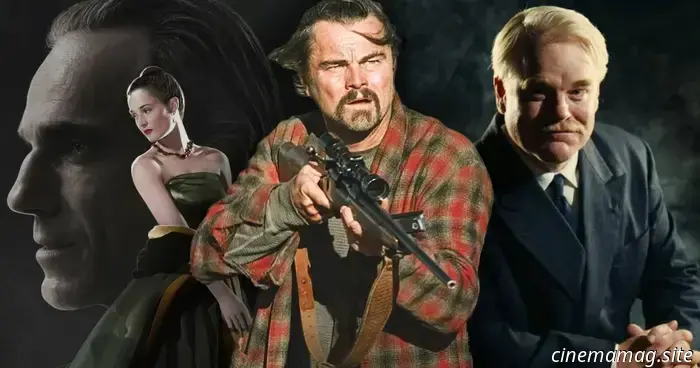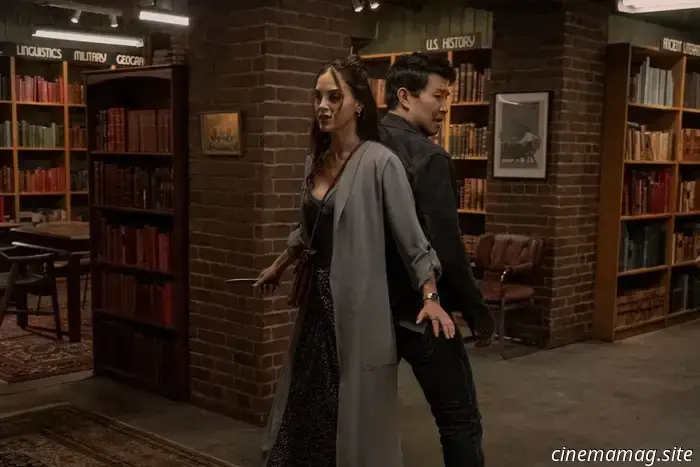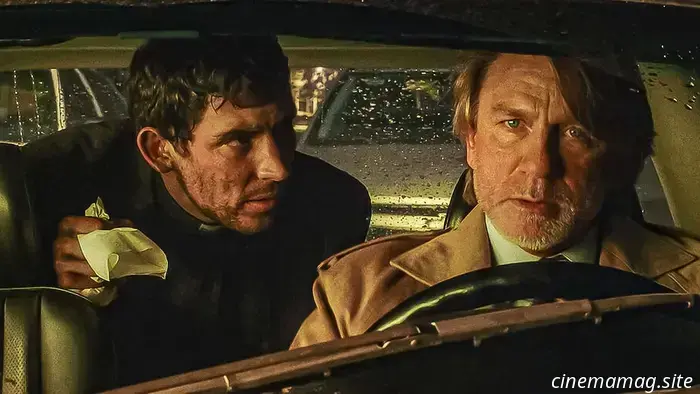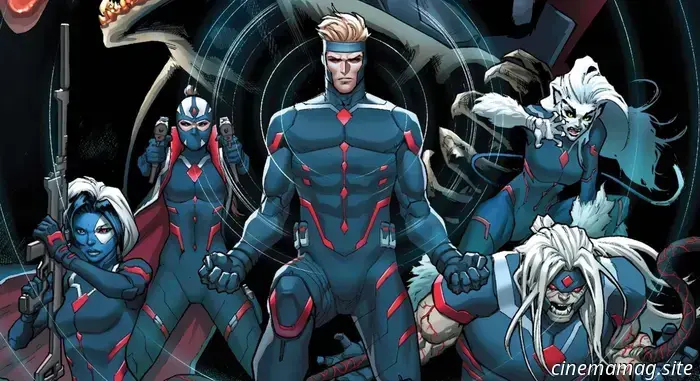
Is Paul Thomas Anderson the greatest Hollywood director of the 21st century?
With a critically acclaimed new film enhancing an already impressive resume, could Paul Thomas Anderson be the finest Hollywood director of this century? Some remarkable directors consistently produce engaging works. They may create films that are highly praised or garner numerous accolades during awards season. One could argue that the cinema of the 21st century thus far hasn't quite reached the heights of the best periods of the 20th century. Nevertheless, several directors can be counted on to create cinema that leaves a lasting impression.
Directors like Hirokazu Kore-eda, Park Chan-wook, Michael Haneke, and Pedro Almodovar rarely miss their mark. In Hollywood, while Ridley Scott posits that most modern movies are subpar, we still have Martin Scorsese active, along with Quentin Tarantino (for one more film), David Fincher, and Christopher Nolan, among others. There are also several emerging filmmakers poised to achieve the consistency necessary to enter the realm of greatness.
However, Paul Thomas Anderson may have just asserted his position as Hollywood's king. By the turn of the century, he had already made waves with Boogie Nights and Magnolia, not to mention his stellar debut, Hard Eight. He entered the 21st century with the cleverly simple yet distinctive Punch Drunk Love, his most nimble and readily accessible film. The performance he elicited from Adam Sandler was considered groundbreaking at the time (before Sandler later proved he could also shine in the right roles).
His next film marked a dramatic transition in his career, taking him from an up-and-coming director of varied films to someone who delivered what could be the first true masterpiece of the new century. It combined the epic scope of classic Hollywood with a gritty 70s feel and a modern, psychologically complex foundation. Daniel Day-Lewis's performance was remarkable, supported by Paul Dano’s career-best portrayal.
There Will Be Blood stands out as a breathtaking technical accomplishment, rich in detail and rewarding multiple viewings. This is perhaps what Anderson excels at, like Nolan and Tarantino, creating grand films that still manage to deliver deeper meaning. In his capacity for layered grandiosity, he likely surpasses his contemporaries.
The challenge with producing something as elite as his Day-Lewis-led oil saga is that replicating that success can be difficult. The Coen brothers, who made an equally sensational film that year with No Country for Old Men, have yet to reach those heights since. Anderson, however, has produced another grand spectacle with One Battle After Another, a film that promises to remain significant in the coming years. Whether it will attain the same legendary status as There Will Be Blood (which recently ranked in the top ten on the NY Times best of the century list) remains to be seen.
Quentin Tarantino set an exceptionally high standard in the ’90s and has often struggled to maintain consistency in his films this century. While Inglourious Basterds, Kill Bill, and Django Unchained feature some of his finest moments, including peaks that may even exceed others, they also contain indulgent and eccentric elements that can slow down the pace or feel mismatched. Although Christoph Waltz’s appearances in QT's films are a cinematic delight, there are also deviations that don't quite resonate, such as Mike Myers in Inglourious or Jonah Hill in Django.
Nolan's films may showcase technical excellence, but his complex narratives can occasionally become convoluted (as seen in Tenet) or feel emotionally detached. There’s a distinctly Tarantino or Nolan signature style to their films, which is part of their appeal. However, while Anderson is adept at imprinting his style, he also possesses the ability to adapt, shifting between genres and tones and prioritizing the film over his own imprint.
This adaptability is particularly evident in Anderson's more thoughtful and intricate films like The Master or Phantom Thread. Could either Nolan or Tarantino create works of this nature while resisting the urge to add grandeur and spectacle? Anderson, in contrast, often opts for simplicity in scenes filled with subtext, as seen in Phantom Thread. If there's a critique to be made of Nolan, it's that he sometimes opts for excessive exposition, whereas Anderson allows audiences to navigate ambiguity.
Martin Scorsese's versatility is also noteworthy, and while he's been impressively consistent this century, it could be argued that his finest works are still from the 20th century. He has also fallen prey to excessive length in films like The Irishman and Killers of the Flower Moon. These films are undoubtedly well-crafted, yet their runtimes felt burdensome. In contrast, I found One Battle After Another, despite its nearly 3-hour length, was so engaging that I wanted more, whereas I noticed the lulls in Killers of the Flower Moon. When discussing all-time greatness, Scorsese is ahead, but in the context of the 21st century, that's where we are now.
In Phantom Thread, Anderson crafted a film that, at first







Other articles
 2025 Review of the BFI London Film Festival – The Voice of Hind Rajab
The Voice of Hind Rajab, 2025. Directed by Kaouther Ben Hania. Featuring Saja Kilani, Motaz Malhees, Clara Khoury, and Amer Hlehel. SYNOPSIS: Volunteers from the Red Crescent respond to an urgent call. A…
2025 Review of the BFI London Film Festival – The Voice of Hind Rajab
The Voice of Hind Rajab, 2025. Directed by Kaouther Ben Hania. Featuring Saja Kilani, Motaz Malhees, Clara Khoury, and Amer Hlehel. SYNOPSIS: Volunteers from the Red Crescent respond to an urgent call. A…
.jpg) Blu-ray Review – The Island (1985)
The Island, 1985. Directed by Po-Chih Leong. Featuring John Sham, Timothy Zao, Hoi-Lun Au, Lap Ban Chan, Lung Chan, Jing Chen, and Billy Sau Yat Ching. SYNOPSIS: A teacher and a group of six students embark on a journey…
Blu-ray Review – The Island (1985)
The Island, 1985. Directed by Po-Chih Leong. Featuring John Sham, Timothy Zao, Hoi-Lun Au, Lap Ban Chan, Lung Chan, Jing Chen, and Billy Sau Yat Ching. SYNOPSIS: A teacher and a group of six students embark on a journey…
 Trailer for the Peacock spy thriller series The Copenhagen Test featuring Simu Liu and Melissa Barrera.
Peacock premiered the first trailer for its anticipated espionage thriller series The Copenhagen Test at New York Comic Con on Sunday. Simu Liu, known for his role in Shang-Chi and the Legend of the Ten Rings, stars as...
Trailer for the Peacock spy thriller series The Copenhagen Test featuring Simu Liu and Melissa Barrera.
Peacock premiered the first trailer for its anticipated espionage thriller series The Copenhagen Test at New York Comic Con on Sunday. Simu Liu, known for his role in Shang-Chi and the Legend of the Ten Rings, stars as...
 2025 BFI London Film Festival Review – Wake Up Dead Man: A Knives Out Mystery
Wake Up Dead Man: A Knives Out Mystery, 2025. Directed by Rian Johnson. Featuring Daniel Craig, Josh O’Connor, Glenn Close, Josh Brolin, Mila Kunis, Jeremy Renner, and others.
2025 BFI London Film Festival Review – Wake Up Dead Man: A Knives Out Mystery
Wake Up Dead Man: A Knives Out Mystery, 2025. Directed by Rian Johnson. Featuring Daniel Craig, Josh O’Connor, Glenn Close, Josh Brolin, Mila Kunis, Jeremy Renner, and others.
 Dark Horse is making a comeback in the Star Wars: The High Republic universe with the new Pathfinders series.
Dark Horse Comics has revealed that it will revisit the High Republic era next year with a six-issue limited series titled Star Wars: The High Republic Adventures – Pathfinders, written by Ge…
Dark Horse is making a comeback in the Star Wars: The High Republic universe with the new Pathfinders series.
Dark Horse Comics has revealed that it will revisit the High Republic era next year with a six-issue limited series titled Star Wars: The High Republic Adventures – Pathfinders, written by Ge…
 Comic Book Sneak Peek – Sinister’s Six #1
The Age of Revelation tie-in Sinister’s Six #1 will be released on Wednesday. Take a look at the official preview of the issue below, provided by Marvel Comics… A SINISTER HEIST! X YEARS LATER, Mr. Sinister ass…
Comic Book Sneak Peek – Sinister’s Six #1
The Age of Revelation tie-in Sinister’s Six #1 will be released on Wednesday. Take a look at the official preview of the issue below, provided by Marvel Comics… A SINISTER HEIST! X YEARS LATER, Mr. Sinister ass…
Is Paul Thomas Anderson the greatest Hollywood director of the 21st century?
With a new film that has received critical acclaim added to his already impressive resume, is Paul Thomas Anderson the finest Hollywood director of this century? While some exceptional directors regularly produce outstanding work, they...
